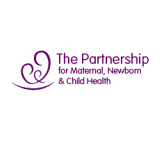
PMNCH in 2014 focused on two main areas of work: drawing attention to the remaining gaps in reaching the MDGs, including newborn and adolescent health, and promoting greater visibility for women’s, children’s and adolescent health in the global development framework emerging as part of the post-2015 sustainable development goals (SDGs).
PMNCH co-hosted the 3rd Partners’ Forum with the Government of South Africa, Countdown to 2015, A Promise Renewed, and the independent Expert Review Group (iERG). The Forum, which took place on 30 June –1 July 2014 in Johannesburg (South Africa), was a critical opportunity for reaching policymakers, the media and uniting the global health and development community with a common strategic vision. More than 1,200 participants joined the meeting, including H.E. Erna Solberg, Prime Minister of Norway; South African Deputy President Cyril Ramaphosa; Archbishop Desmond Tutu, UN Secretary-General Ban Ki-moon, former US Secretary of State Hillary Clinton and Bono of U2, via special video addresses. The strong representation of youth participants underlined the message that adolescent health is central to the concerns of this community.
The Forum was a key venue for the launch of new evidence products, action plans and commitments. These included the ENAP, which resulted from consultations with more than 60 organizations over a period of nearly two years, led by WHO and UNICEF. PMNCH led the advocacy drive for the ENAP, resulting in a resolution approved by the World Health Assembly in May 2014. More than 40 new commitments to the ENAP were announced at the meeting in support of Every Woman Every Child (EWEC).
The Forum saw the launch of Countdown to 2015’s latest report which showcases progress in the 75 countries which account for over 95% of all maternal and child deaths in achieving MDGs 4 & 5. The report describes lessons learned from Countdown’s 10 years of work on accountability, and presents country profiles for each of the 75 countries. Based on 10 in-depth country case studies and the analysis of 20 years of data from 144 countries, the Success Factors series of studies, coordinated by PMNCH with a wide range of partners, to shed a light on how and why countries are succeeding in their efforts to achieve MDGs 4 and 5 was also launched at the Forum. The Success Factors studies show that high-impact health interventions have accounted for 50% of the child mortality reduction achieved since 1990 – the remaining 50% is due to factors outside the health sector, such as girls’ education and access to clean water. Through these reports, PMNCH has intensified the call for a continued focus on women’s and children’s health and greater cross-sectoral collaboration as part of the operationalization of the new SDGs framework, including promoting synergies between health and education, water and sanitation, nutrition and gender equity programmes and policies